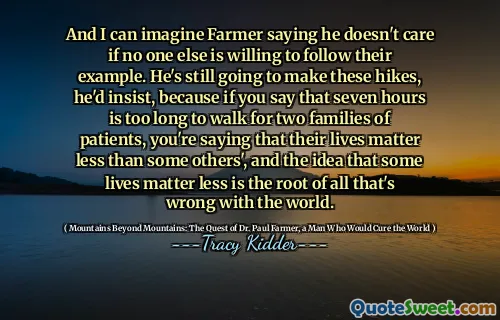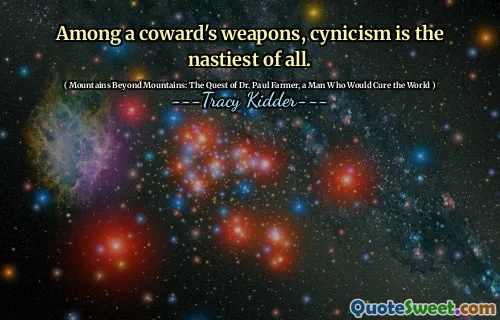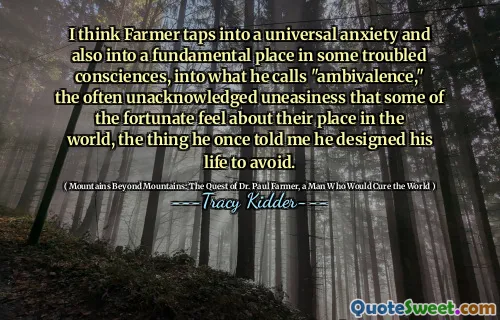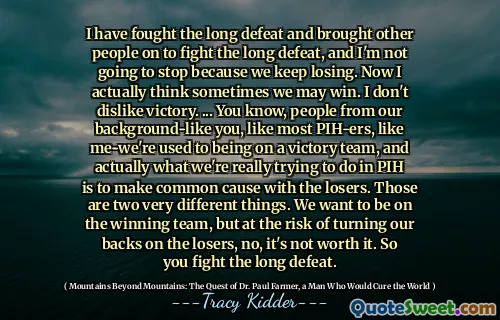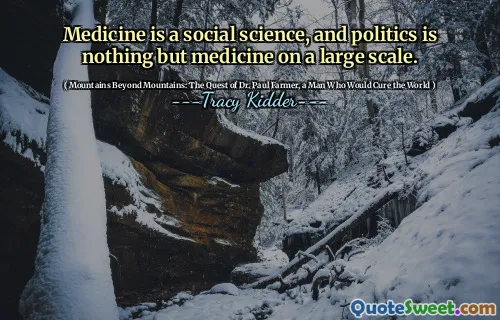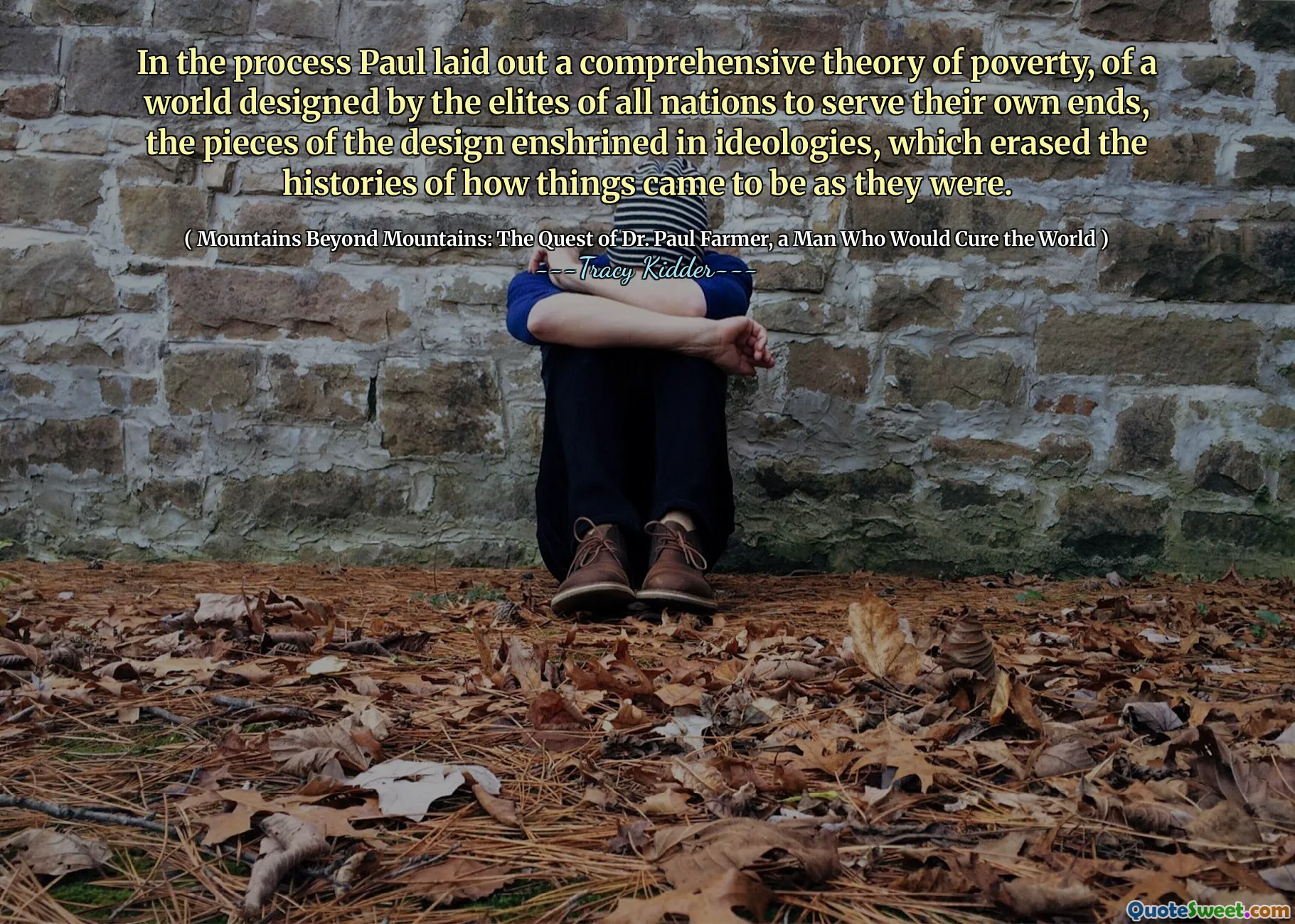
In the process Paul laid out a comprehensive theory of poverty, of a world designed by the elites of all nations to serve their own ends, the pieces of the design enshrined in ideologies, which erased the histories of how things came to be as they were.
In "Mountains Beyond Mountains," Tracy Kidder explores Paul Farmer's extensive theory on poverty, which suggests that global elites manipulate systems to benefit themselves. This theory highlights that the structures of power and privilege are deliberately crafted to sustain inequality, often obscured by ideologies that ignore the historical contexts of these issues.
Farmer's perspective challenges readers to recognize the interconnectedness of poverty and the legacies of exploitation that persist in contemporary society. By shedding light on these dynamics, the book urges a reevaluation of how societal structures are constructed and the responsibilities of those in power to address these ingrained injustices.
